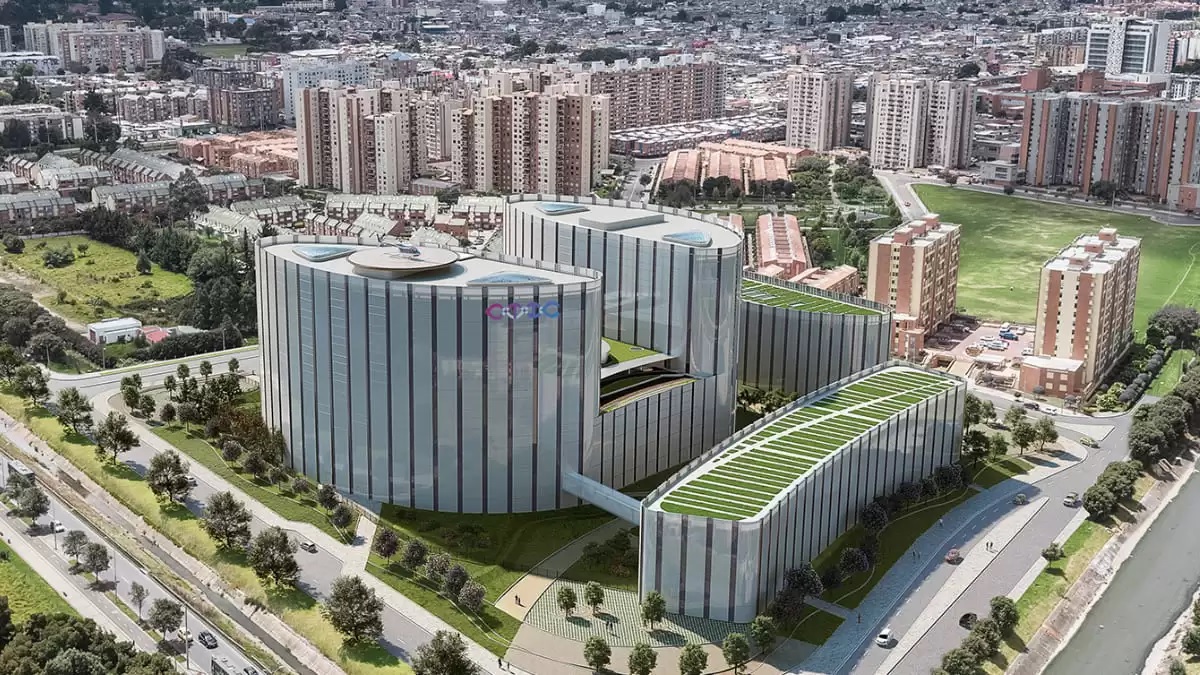The Cancer Treatment and Research Center (CTIC), a non-profit foundation with state-of-the-art technology to attend to 7,000 patients, was inaugurated on Thursday, July 21, in Bogota, making it the largest center in Colombia and the most modern in Latin America in its field.
Located in the north of the Colombian capital, the building of more than 100,000 square meters has 176 beds for oncology patients and facilities inspired by the main centers of its kind in the world to provide a comprehensive and multidisciplinary service that avoids long journeys for those suffering from any stage of any cancer in Bogota.
Annexed to the care center is a 10,000 square meter unit dedicated to detailed research into the causes, effects, and pathologies of cancer, consisting mainly of laboratories equipped with the most advanced equipment in genomics, proteinomics, and immunogenetics, and with spaces for students and personnel in training in the care of the disease.

“We want to change the history of cancer in Colombia through research that allows us to understand how the disease works and how we can design innovative treatments to help patients improve their quality of life,” Sandra Rodriguez, head of Quality at the CTIC Foundation, told Xinhua during a tour of the research center’s facilities.
“We are already a reference in Latin America; we have state-of-the-art equipment that you will only find in Colombia, which puts us at the forefront of cancer treatments in the region,” Rodriguez added.
The CTIC also has four bunkers for radiotherapy, nine state-of-the-art operating rooms, 56 infusion chairs for chemotherapy, and 30 intensive care units (ICU) with the capacity to treat any disease, including COVID-19, which means a contribution to the health system of the Colombian capital in this type of medical care.
Victor Hugo Nieto Estrada, head of the CTIC’s Comprehensive Intensive and Intermediate Care Unit, told Xinhua that the foundation has a differential in the care of the disease, “it is a model centered on the patient and the family and is basically to provide humanized care to improve the perception of uncertainty that patients admitted to intensive care may have”.
“We are equipped with all the necessary technology to care for patients with COVID-19 or other infectious contagious pathologies or patients who require a specific protective environment for them,” commented the internist.
Equipment such as the CyberKnife, dedicated to intracranial and extracranial robotic surgery with 99% accuracy and safety and with the capacity to treat 12 patients a day, is part of the modern equipment available at the new medical care center.
“With this equipment, Colombia puts itself at the same level as North American and European countries where this same robotic surgery technology is offered, which is the main starting point for oncological treatments that require specialized radiosurgery,” Ivan Andres Bobadilla, a doctor who specialized in radiotherapy and head of the foundation’s Special Radiotherapy Unit, told Xinhua.
According to the World Health Organization, cancer causes more than 10 million deaths yearly. In Colombia, according to the Global Cancer Observatory (Globocan), more than 113,000 new diagnoses of cancers such as lung, liver, stomach, colon, and breast cancer occur annually, a figure that will tend to grow due to the aging of the Andean country’s population.
With information from Xinhua

